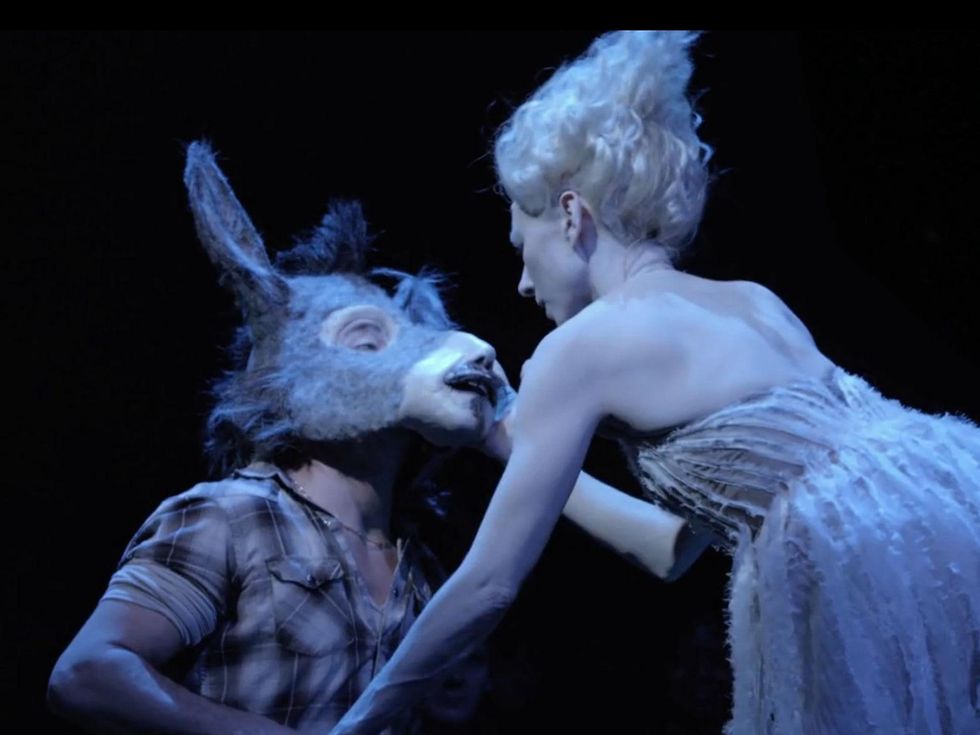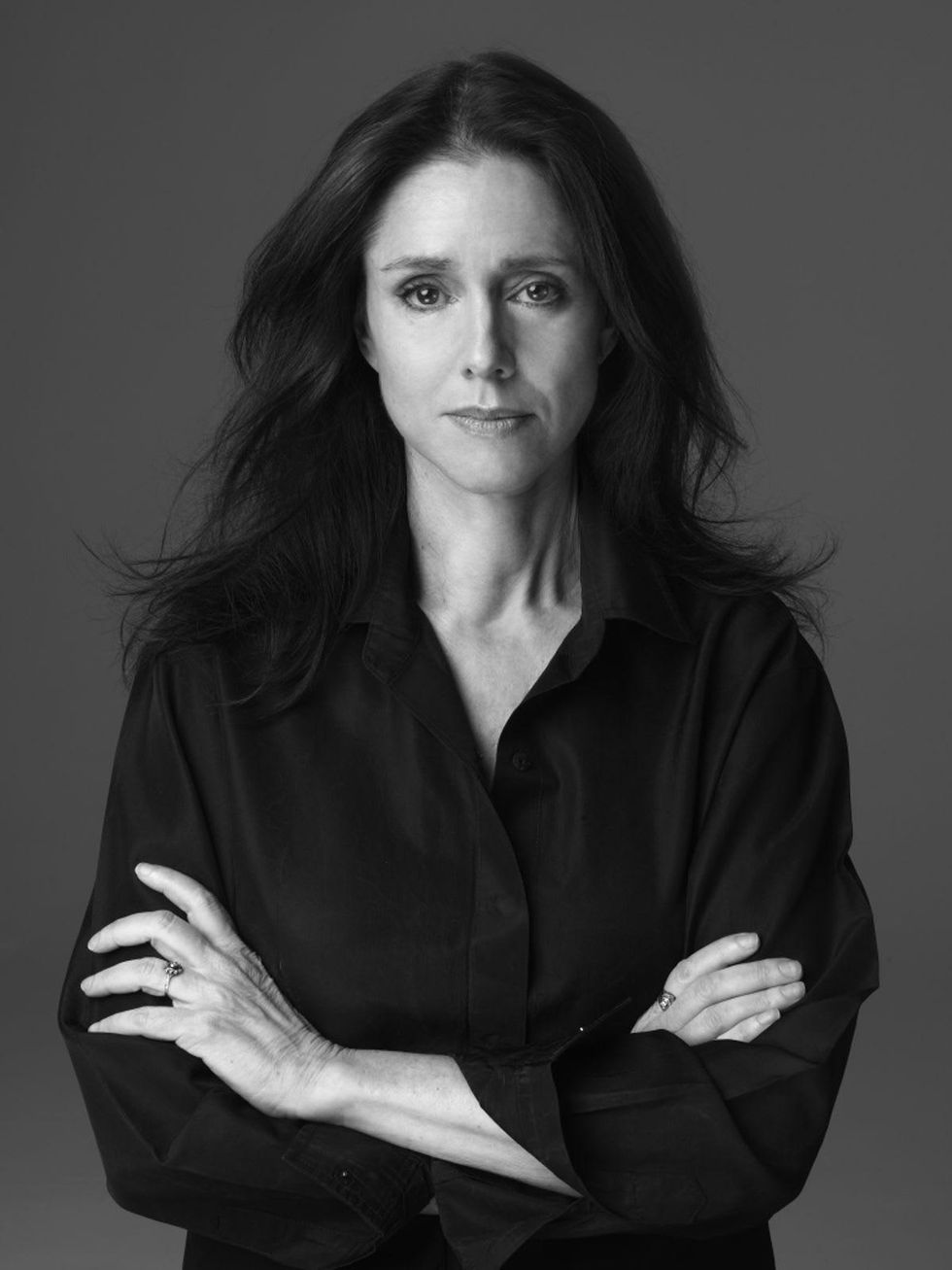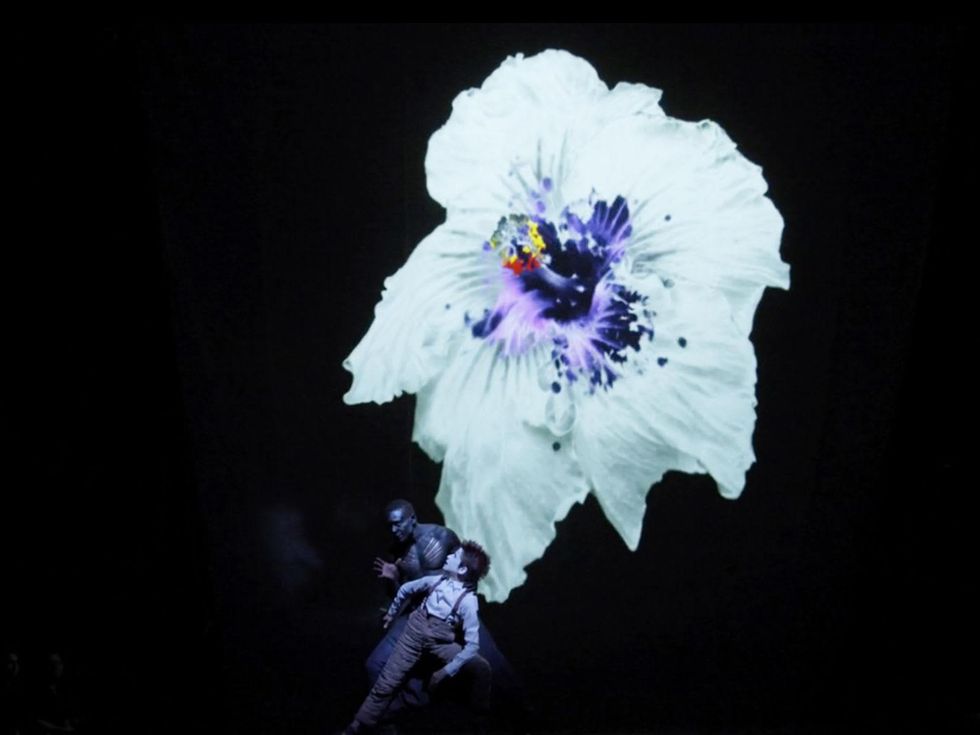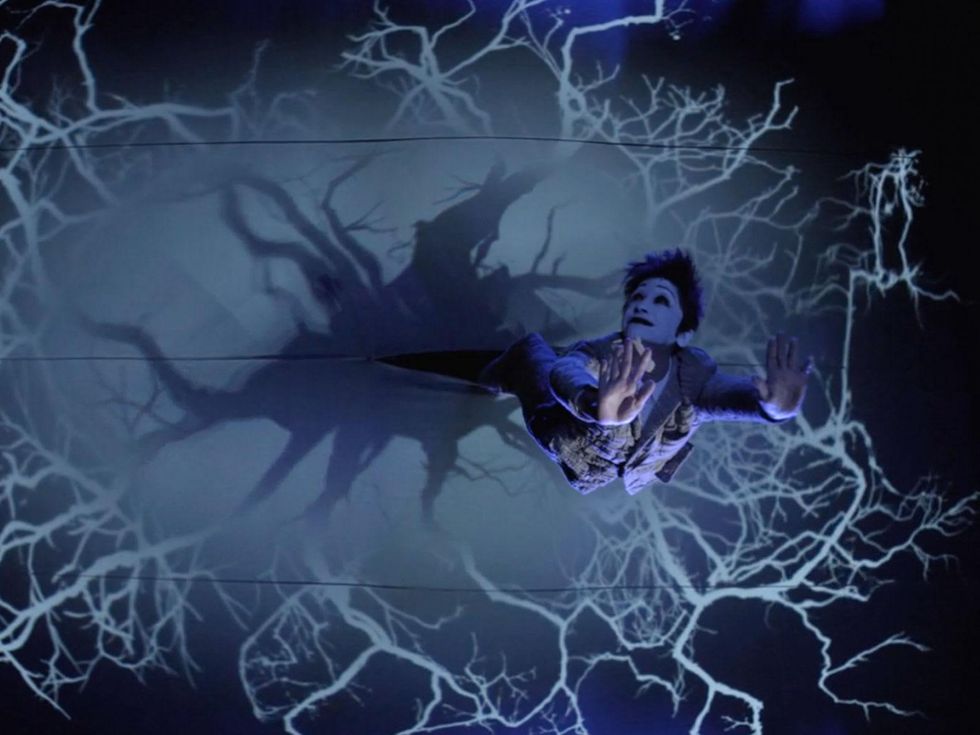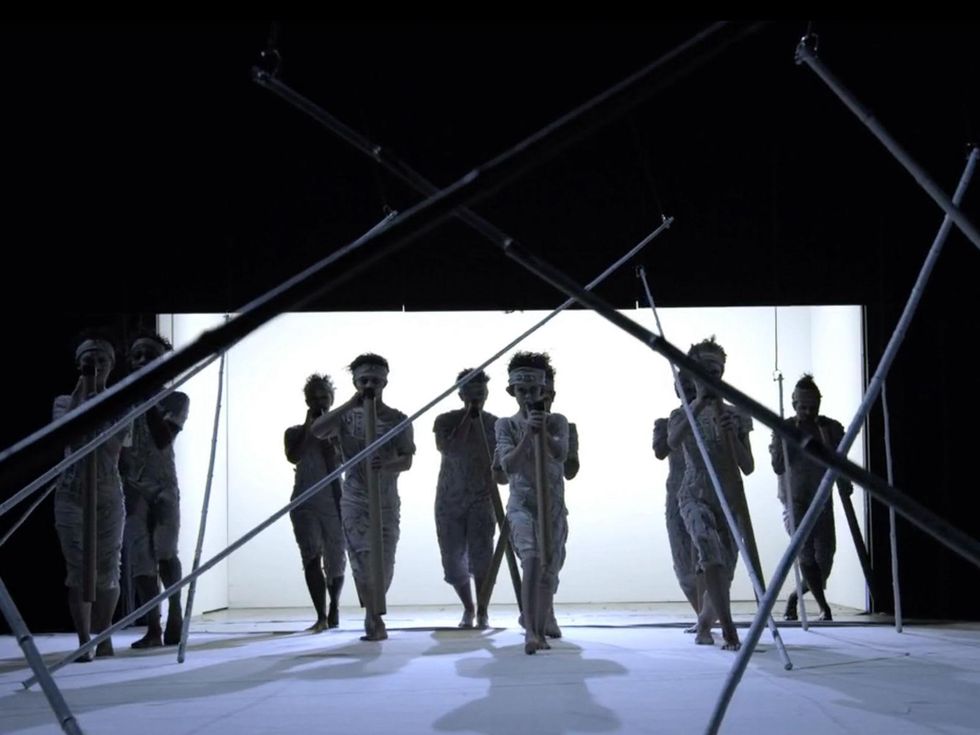Cinema Arts Festival Opener
Julie Taymor, The Wonder Woman: Controversial director's latest surreal movie opens Cinema Arts Fest
Before the accolades and Tony Award for directing The Lion King, before the controversy and contention of Broadway's Spider-Man: Turn Off the Dark, theater, opera and film director Julie Taymor illuminated the darkness and beauty of Shakespeare onstage and later onscreen.
Now she’s going back to her Bard roots with a new filmed version of her haunting 2013 stage production of A Midsummer Night’s Dream, which will have its Texas debut on Wednesday at the opening night celebration of the 2014 Houston Cinema Arts Festival.
The Essence of the Piece
In the past, Taymor has said she begins each project by finding an ideograph, a single image that represents the essence of the piece. For example, she saw The Lion King as a circle and repeated the image in a multitude of ways throughout her acclaimed production. When I had a chance to talk to her before her trip to Houston, I had to ask what core image she found in the text of Midsummer Night’s Dream.
Her answer? The bed and shadows.
Her film begins with a bed and dreamer. That dreamer becomes the trickster fairy Puck, one of Shakespeare’s most beloved characters. The bed is deconstructed and used throughout the play to become other parts of the set, while the bed sheets become the forest floor, hammock and wedding canopy. Combined with projections the sheets even become the heavens.
While some directors might mute the warped message of this marriage made essentially at sword-point, Taymor does not.
“We could create all of nature in a kind of dream-like, surreal way,” she says.
Shadows meanwhile become a kind of “signature” of the film.
“What is the shadow but a negative reduction of yourself,” Taymor ponders. “I think that is a great deal of what this play is about, which is the darker self, even though it’s a comedy. It’s the other side of ourselves at night when we’re sleeping.”
Though arguably Shakespeare’s most famous comedy, there is a shadowy darkness, throughout Midsummer, beginning with the Oberon’s fairy minions, which Taymor cast with young actors that become “not that cute child fairy thing,” but “much more about of the elements of nature.”
Love and Marriage
Another darkness in the play and this production is seen in the relationship between the sexes. Literary history, though foggy on the details, tells us that Shakespeare wrote the play to be performed at an aristocratic wedding. Taymor thinks Shakespeare has a great deal to say about marriage if we look at the play’s couples, beginning with the wedding that frames the action, the marriage between Duke Theseus of Athens and the conquered queen of the Amazons, Hippolyta.
While some directors might mute the warped message of this marriage made essentially at sword-point, Taymor does not.
“Hippolyta has very little say in most of it,” she notes. “At the end she speaks up a bit more, but it’s a very uncomfortable situation and very true. That’s what I think Shakespeare is investigating, all the different relationships of love and marriage. He’s not being idealistic about it.”
Then there’s the fairy royal couple Titania and Oberon, which Taymor calls an “eternal marriage,” saying: “Even that marriage has twists and jealousy and divorce. He has to humiliate his wife in order to get her back.
“Wonder Women or superheroes, it’s all connected to mythology, whether its Thor’s Norse mythology or Greek mythology. It’s the same world that I deal in when I deal with fairytales or myths."
“He doesn’t stop at anything, Shakespeare. He says to this royal couple who was getting married: This is Marriage. He puts it into a surreal, supernatural form so that it is not offensive, so he can talk about it; otherwise, no one would want that for their wedding.”
As we delved deeper into our discussion of the film, I wondered that while the big Shakespearean tragic heroes like Hamlet or Lear might be the pinnacle role of any acting career, if it’s not Midsummer that might be the ultimate challenge for a director, since Shakespeare offers the opportunity to create a whole new imagined world.
Taymor says that could be true in her case, as, she kept pushing the play away until she could discover how to represent Midsummer’s supernatural universe.
“Until I could figure out how to do Puck and how I would do the fairy world, I really didn’t commit to do it. I refused to do it for many years,” she admits. “I didn’t want to do things people would expect with puppetry, not that I have anything against puppetry, but I don’t go there unless it’s necessary.”
Stage to Screen
To take the production from stage to screen, Taymore exchanged her theater director perspective for a movie director one, tapping her Frida cinematographer, Rodrigo Prieto, to work with her again. While the filming of live theater and opera productions for limited showings in cinema art houses is becoming a favorite way to bring theater to wider audiences, Taymor thinks her Midsummer is different.
“I think we have a bit of an advantage over all the NT Live and Met Live and all these performances you’ve been seeing in the movie theaters, because we got to go on stage, which you can’t do [when filming] a live performance. Then we got to spend 10 weeks editing and really make this move and feel like a film.”
A Wonder of a Woman
Taymor is still associated, in not necessarily favorable terms, with the Spider Man musical, but in the past few weeks her name has also been Internet whispered in conjunction with another superhero, Wonder Women.
With the news that Warner Bros was looking for a female director for the Amazonian queen’s solo movie, Taymor seems to have become the dark horse candidate on everyone’s short list. So I had to ask her, if called, would she be ready to revisit the superhero genre again. After all, Wonder Woman is Hippolyta’s daughter in comic book mythology.
In her reply, Taymor says she loved and “adored” Spiderman and that script, and that’s what it comes down to when picking a project, the story.
“It has to start with the script speaking to me,” she says. “Wonder Women or superheroes, it’s all connected to mythology, whether its Thor’s Norse mythology or Greek mythology. It’s the same world that I deal in when I deal with fairytales or myths. I’m not in principle against any genre.
"I’m for what is something that compels me to tell a story and is well written. Does it offer me a landscape that I want to spend a year or two of my life immersed in? I don’t [automatically] say yes or no to anything. Show me the production. What will the story be?”
The Midsummer Night's Dream screening at the Museum of Fine Arts, Houston on Wednesday at 7 p.m. is followed by a conversation with director Julie Taymor, moderated by Greg Boyd (Artistic Director, Alley Theatre).
